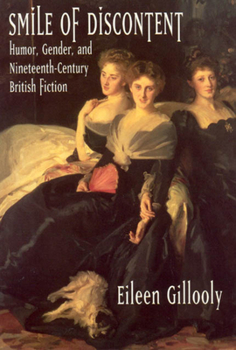Smile of Discontent: Humor, Gender, and Nineteenth-Century British Fiction
(Part of the Women in Culture and Society Series)
Select Format
Select Condition 
Book Overview
Like sex, Eileen Gillooly argues, humor has long been viewed as a repressed feature of nineteenth-century femininity. However, in the works of writers such as Jane Austen, George Eliot, Elizabeth Gaskell, Anthony Trollope, and Henry James, Gillooly finds an understated, wryly amusing perspective that differs subtly but significantly in rhetoric, affect, and politics from traditional forms of comic expression. Gillooly shows how such humor became, for mostly female writers at the time, an unobtrusive and prudent means of expressing discontent with a culture that was ideologically committed to restricting female agency and identity. If the aggression and emotional distance of irony and satire mark them as "masculine," then for Gillooly, the passivity, indirection, and sympathy of the humor she discusses render it "feminine." She goes on to disclose how the humorous tactics employed by writers from Burney to Wharton persist in the work of Barbara Pym, Anita Brookner, and Penelope Fitzgerald. The book won the Barbara Perkins and George Perkins Award given by the Society for the Study of Narrative Literature.
Format:Paperback
Language:English
ISBN:0226294021
ISBN13:9780226294025
Release Date:June 1999
Publisher:University of Chicago Press
Length:316 Pages
Weight:0.96 lbs.
Dimensions:0.7" x 6.0" x 9.0"
Customer Reviews
0 rating





